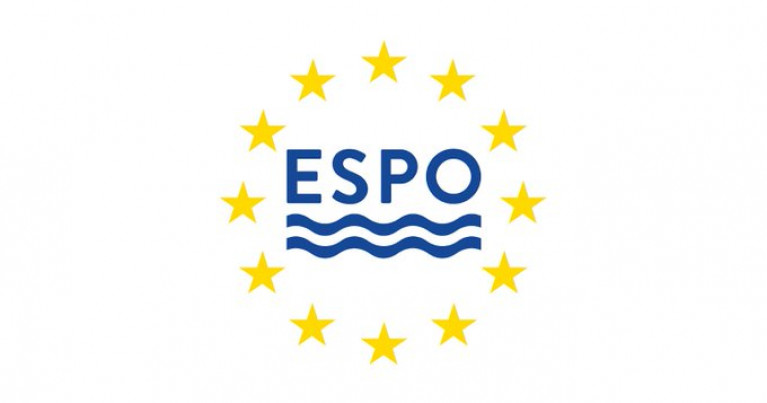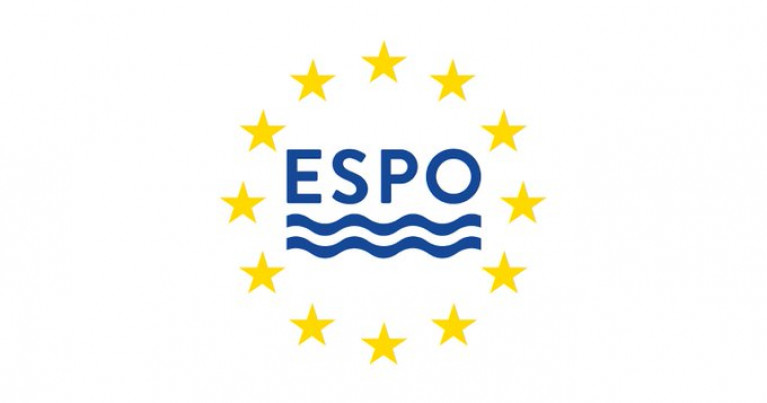Displaying items by tag: TENT Review
ESPO Welcomes Recognition of Multidimensional Role & Cross-Border Character of Europe’s Ports in TEN-T Review
The European Sea Ports Organisation (ESPO) has welcomed the Commission proposal setting out the new guidelines for the Trans-European Transport Network (TEN-T).
The proposal, which was published on 14 December, lifts the importance of the maritime dimension and the role of ports within the framework of Europe’s TEN-T policy. It defines maritime ports as the entry and exit points for the land infrastructure of the trans-European transport network and, for the first time, explicitly recognises their role as cross-border multimodal nodes which serve not only as transport hubs, but also as gateways for trade, industrial clusters and energy hubs.
“Based on a first reading of the proposal, we would like to congratulate the Commission on this proposal, which recognises and reflects the important role seaports are playing in Europe’s transport network. ESPO and its members have always been strong supporters of Europe’s TEN-T policy and the current proposal gives the maritime dimension of TEN-T the place it deserves as an integral and equally important part of Europe’s transport infrastructure, with the seaports as the connecting points,” says ESPO’s Secretary General, Isabelle Ryckbost, in a first reaction to the proposal.
While ensuring the stability of the current network, the proposal succeeds in adding some important missing connections and nodes to the network. European ports especially welcome the inclusion of all maritime links in the dimension of the European Maritime Space (former Motorways of the Sea). By enhancing the maritime links with Ireland and expanding a Corridor across the Western Balkans, the proposal reflects Europe’s current connectivity needs. The alignment of the Rail Freight and TEN-T Corridors are also an important step forward.
European seaports welcome moreover the new focus on the resilience of the network. Not only climate resilience plays a crucial role to make port infrastructure future-proof, cybersecurity and diversionary lines in the hinterland are also a main priority of ports. As critical infrastructures, Europe’s ports also note with interest the different proposals to strengthen the tools to assess any risks to security or public order.
On a more critical note, ESPO regrets that pipelines have not been considered as part of Europe’s Transport Infrastructure. Pipelines will increasingly play an essential role in the implementation of Europe’s decarbonisation agenda and will be a necessary mode of transport for new energies.
“We will now look further into the details of the proposal, the annexes and maps on the table, but we consider the proposal as a solid and good basis to work on with the Commission, Parliament and Council,” adds Isabelle Ryckbost.
The Commission TEN-T proposal and annexes can be found here.
EU Parliament Transport Committee’s Report Reflects ESPO’s View of Forthcoming TEN-T Review
European Sea Ports Organisation (ESPO) has welcomed the European Parliament’s own-initiative report on the revision of the Trans-European Transport Network (TEN-T) guidelines by rapporteur Jens Gieseke (German, EPP), which was adopted yesterday, 1st December.
“I would like to congratulate the rapporteur and the Transport MEPs for the work on this important own-initiative report. The report very well caters to the points to be addressed in the review. We are happy to see that the strategic and complex role of seaports is well recognised, that the need to level the playing field between Motorways of the Sea and other land-based modes in the setting of requirements is addressed and that the need for synergies between the TEN-T and TEN-E policy is put forward. Finally, we appreciate the paragraphs campaigning for sufficient funding to complete Europe’s Transport Infrastructure Network. One should consider an efficient, sustainable and resilient Transport Infrastructure Network as an important enabler of Europe’s Recovery Strategy. We do hope this report will be taken into account for the preparation of the new TEN-T proposal”, comments ESPO’s Secretary General Isabelle Ryckbost.
ESPO especially welcomes that the strategic role of European maritime ports has been recognised by many members of the Committee during the compromise negotiations and is well reflected in the final voting result. The report further underlines the need for sufficient EU funding to complete the TEN-T network, regretting the recent cuts to the Connecting Europe Facility, decided by the Council.
In the framework of modal shift, as one of the tools to decrease emissions from the transport sector, ESPO especially values that the report underlines the importance of Motorways of the Sea (MoS) and short-sea shipping (SSS) as a sustainable mode of transport. The call for a simplification of the MoS requirements in order to create a level playing field with the land-based modes is fully in line with ESPO’s position on the TEN-T revision.
The report properly reflects the complex nature of European maritime ports by stressing that ports are not only a component of maritime transport, but increasingly clusters of all modes of transport, energy, industry and blue economy, by highlighting the cross-border dimension of maritime ports and by recognising the necessity to increase synergies within ports between transport, energy and digital infrastructure.
ESPO also welcomes that the Transport Committee recognises the continued importance of capacity-ensuring measures to remain competitive transport nodes. Despite the diversity of European ports’ investment needs, investments in basic infrastructure and maritime access infrastructure make up a large share of the planned projects (click HERE).
Moreover, ESPO supports the promotion of better connectivity with third countries, including transport connections to candidate countries, the Western Balkan, as well as countries of the Southern Mediterranean and Eastern Partnership. In light of the withdrawal of the UK from the Union, the report rightly stresses the effective connection of Ireland with mainland Europe with particular attention for the maritime routes as crucial.
ESPO hopes that the report will be largely supported in the plenary vote and will serve as an important input to the European Commission in the preparation of the legislative proposal for the revision of the TEN-T guidelines.






























































